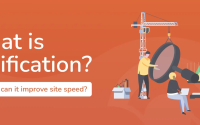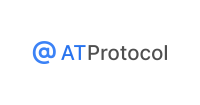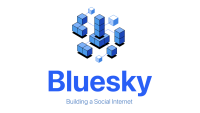Drupal is a powerful content management system (CMS) used by millions of websites worldwide. However, for those new to Drupal or even experienced users facing challenges, there are often many questions that arise. In this article, we’ll tackle some of the most frequently asked questions about Drupal to help you navigate this versatile platform.
1. What is Drupal, and how does it work?
Answer: Drupal is an open-source content management system (CMS) that allows users to create and manage websites easily. It operates on a modular architecture, meaning users can extend its functionality through various modules and themes. Content is organized into types (e.g., articles, pages) and can be structured in complex ways using taxonomies, allowing for flexible site organization and display.
2. What are the key features of Drupal?
Answer: Drupal offers a wide array of features, including:
- Flexible Content Types: Create custom content types tailored to your needs.
- User Management: Advanced user role and permission settings for fine-tuned access control.
- Taxonomy: Organize content with tags and categories.
- Multilingual Support: Build websites in multiple languages with ease.
- SEO-Friendly: Built-in tools for search engine optimization.
- Robust API: Integrate with other applications and services seamlessly.
- Extensibility: Thousands of modules available for added functionality.
3. Is Drupal suitable for beginners?
Answer: While Drupal has a steeper learning curve compared to other CMS platforms like WordPress, it is still accessible to beginners, especially with the availability of extensive documentation and community support. Beginners can start with simpler projects and gradually explore more advanced features as they become familiar with the platform.
4. How is Drupal different from other CMS platforms?
Answer: Drupal stands out from other CMS platforms due to its:
- Flexibility: Highly customizable through modules and themes.
- Scalability: Suitable for small websites as well as large enterprise applications.
- Security: Robust security features that are regularly updated by a dedicated team.
- Content Structure: Advanced content organization and management capabilities.
- Community Support: A strong global community that contributes to its continuous development and improvement.
5. What types of websites can be built with Drupal?
Answer: Drupal can be used to build various types of websites, including:
- Corporate websites
- E-commerce sites
- Educational platforms
- Social networking sites
- Blogs and personal portfolios
- Government websites
- Intranets and extranet portals
6. How can I enhance the security of my Drupal site?
Answer: To enhance the security of your Drupal site, consider the following measures:
- Regular Updates: Always keep Drupal core and contributed modules up to date to mitigate vulnerabilities.
- Access Control: Use Drupal’s granular user permissions to restrict access to sensitive areas.
- Security Modules: Implement security modules like Security Kit, CAPTCHA, and Two-Factor Authentication (2FA).
- Audit Logs: Monitor logs for suspicious activity.
- Backups: Regularly back up your site to ensure you can recover quickly in case of an incident.
7. What are Drupal modules, and how do I use them?
Answer: Modules are extensions that add specific features and functionalities to a Drupal site. They can be installed and configured through the Drupal admin interface. To use a module:
- Visit the Drupal.org module repository to find the desired module.
- Download the module and place it in the
/modulesdirectory of your Drupal installation. - Enable the module through the Drupal admin panel under the “Extend” section.
- Configure the module settings as needed.
8. Can I create a multilingual website with Drupal?
Answer: Yes, Drupal has excellent support for multilingual websites. You can create content in multiple languages using the core multilingual modules, allowing you to translate site content, user interfaces, and even URLs. The process is straightforward, and the system is designed to accommodate various language settings for a global audience.
9. How do I choose a Drupal hosting provider?
Answer: When selecting a Drupal hosting provider, consider the following factors:
- Performance: Look for hosting with SSD storage, caching options, and robust server configurations.
- Security: Ensure the provider offers strong security measures, including regular updates and backups.
- Scalability: Choose a host that can accommodate your site's growth over time.
- Support: Opt for a provider with a knowledgeable support team familiar with Drupal.
- Reviews and Reputation: Research user reviews and the provider’s reputation within the Drupal community.
10. How can I find help if I encounter issues with Drupal?
Answer: If you face challenges with Drupal, various resources are available:
- Drupal Documentation: The official Drupal documentation offers extensive guides and tutorials.
- Community Forums: Engage with the Drupal community through forums, user groups, and social media platforms.
- Local Meetups: Attend local Drupal meetups or events to network and learn from other users.
- Professional Support: Consider hiring Drupal experts or agencies for complex projects or troubleshooting.
Conclusion
Drupal is a powerful and flexible CMS that meets the needs of diverse users, from beginners to seasoned developers. By addressing common questions and challenges, this guide aims to empower you to make the most of Drupal for your website projects. With the right resources and support, you can navigate the Drupal landscape with confidence and create exceptional digital experiences.







